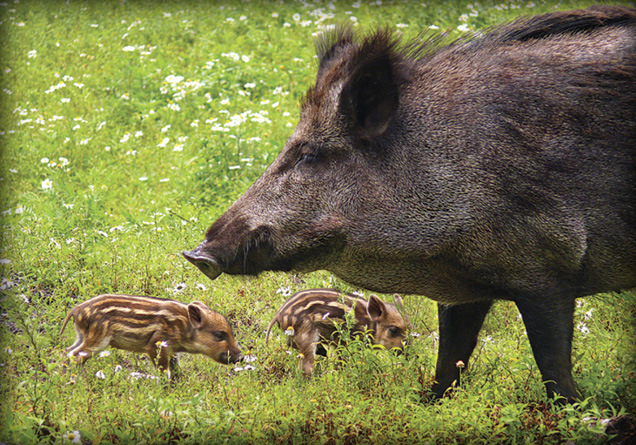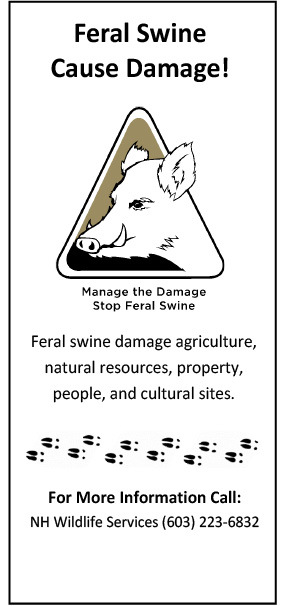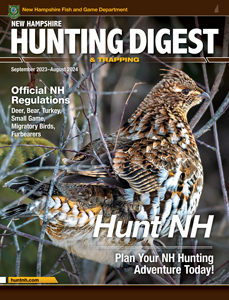Report Feral Swine

Wild pig, feral hog, and Russian boar are common names used to describe today’s free-ranging feral swine, which are now found in 39 states, including New Hampshire. Because this non-native invasive species poses extensive damage and disease threats, they are of significant concern to farmers, livestock producers, natural resource managers, animal health officials, hunters, naturalists, and the general public.
Feral swine can damage pasture and consume and trample crops. They devastate native habitat by affecting forest regeneration and contaminating water supplies. Feral swine can severely affect native animal and plant communities, especially sensitive species. They prey upon amphibians, reptiles, deer fawns, wild turkeys, grouse, and other ground nesting birds and their eggs. Feral swine will also out-compete native wildlife for food, such as acorns and beechnuts. They can transmit as many as 30 pathogens and 37 parasites, many of which pose serious threats to humans, livestock, wildlife, and pets.

In New Hampshire, feral swine are considered escaped private property and may only be hunted with permission of their owner. Please contact USDA/APHIS-Wildlife Services (WS) immediately with feral swine sightings or possible sign. It is also important to quickly notify WS of swine mortalities so blood and tissue samples can be collected for disease surveillance. The results of this effort will help protect human health, agriculture, and natural resources of New Hampshire. Learn more at wildnh.com/wildlife/profiles/feral-hogs.html.
Report feral swine to:
Tony Musante, Wildlife Disease Biologist
USDA/APHIS-Wildlife Services
59 Chenell Drive, Suite 7
Concord, NH 03301
603-223-6832

